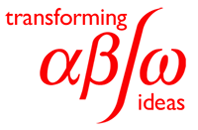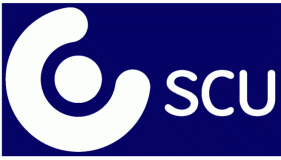Blog Archives
Science Journalism Summer School 2017
Every two years, the Association of British Science Writers (ABSW) hosts its one-day Science Journalism Summer School. The 2017 event took place on 5 July at the Wellcome Trust in London, and I went along as a budding freelance science writer to learn a few tricks of the trade.
I was joined by 135 other delegates on the airy and light sixth floor of the Trust’s superb glass-fronted Euston Road building on one of the hottest days of the year. With me were undergraduates, PhD students, freelancers of many kinds, and established science journalists working for a range of organisations. Oh – and a colleague (Clare Gee) from my Masters course in Science Communication here at UWE! Billed as a 12-hour working day, I indeed arrived for coffee at 9am, and did not depart until 8.30pm after the superb networking session with commissioning editors from a number of science publications, such as New Scientist.
BBC Science Correspondent Pallab Ghosh opened the proceedings, and the format for the rest of the day followed short talks with panel discussion and audience Q&A. We learned about new media trends, particularly around digital news consumption, in the context of the question ‘Where have all the science correspondents/journalists gone?’. ITV’s Science Correspondent Alok Jha extolled the virtues of critical science journalism in the fake news world, asserting the need to communicate conflicts between scientific researchers and cast more light on the imperfections and uncertainties of the scientific endeavour. That doesn’t sit so easily with being a proponent of science, which most of us are.
A session on pitching skills was most revealing, with commissioning editors suggesting that they aren’t receiving enough news pitches (short 250-word pieces) alongside the veritable flood of feature pitches. They were keen to point out that background was largely irrelevant; if the story was good and the source reliable, they’ll take it. And one particularly good tip to remember is that editors often prefer to receive a ‘phonecall, with e-mail used as the follow-up.
The session on investigative reporting left a sense of how good for society the best journalism can be, despite the challenges around funding this type of work in today’s climate. Given the potential risks, freelancers were generally advised to steer clear of investigative reporting!
 Perhaps the highlight for me was the final session on “successful freelancing”. There were personal testimonies of the struggle to get going, to find sources of work, to carve out a niche area of specialisation. Max Glaskin, the successful, award-winning author of the magazine Cycling Science, offered a tremendous insight laced with some dark humour along the way. His successful writing career has allowed him to diversify his sources of income through giving talks, chairing panel discussions and undertaking specialist scientific consultancy.
Perhaps the highlight for me was the final session on “successful freelancing”. There were personal testimonies of the struggle to get going, to find sources of work, to carve out a niche area of specialisation. Max Glaskin, the successful, award-winning author of the magazine Cycling Science, offered a tremendous insight laced with some dark humour along the way. His successful writing career has allowed him to diversify his sources of income through giving talks, chairing panel discussions and undertaking specialist scientific consultancy.
All-in-all, a long but rewarding day, worth every penny. If you want to meet several commissioning editors in one place at one time and establish relationships, then this biennial Summer School is a good investment of your time and money.
You can read my blog, Sykes on Science, at: www.sykesonscience.wordpress.com
Ben Sykes, MSc Science Communication student, UWE
Student opportunities at the Latitude Festival
One of the nice things we’re able to do from time to time is offer our Masters students work experience on a public engagement project.
For the last two years (2014 and 2015) Margarida Sardo and I have carried out an evaluation of a strand of activities sponsored by the Wellcome Trust at the annual Latitude Festival.
The Latitude Festival is a well-known and wide-ranging cultural festival, which includes comedy, music, theatre, literature, poetry, dance and more (think Glastonbury but with less mud and more writers!). The Wellcome Trust events are also hugely varied, including poetry, music and theatre performances, presentations, discussions, dialogues and interactive events.
Margarida designed the evaluation, including snapshot interviews with members of the audiences, informal feedback via comment cards, observations of events and interviews with presenters, while I led the evaluation at the festival. In both years, the students were chiefly responsible for carrying out the audience interviews and looking after the informal feedback, so it was an excellent opportunity to gain an understanding of what is involved in the evaluation of a live event as well as strengthen their communication skills.
With around 26 events taking place in half a dozen locations around the three days of the Festival, the help and support of our students was absolutely invaluable in helping to collect as much data as possible. Between them, the 2015 team observed 14 full events, persuaded 45 people to be interviewed and got 192 people to complete a comment card!
In return for students’ support, we offered a modest payment, subsistence expenses during the Festival and free transport to and from Suffolk. The students also had free tickets to the Festival, which gave them access to most of its 200 or so events. As most of the science events took place during the day, and the big comedy and music headliners were on late at night, the students got to see some really interesting stuff!
You can find our report from the 2014 Festival on the UWE repository. And the hard work of the students is also contributing to two papers that Margarida and I are currently working on.
Ann Grand and Margarida Sardo are research fellows in the Science Communication Unit.




